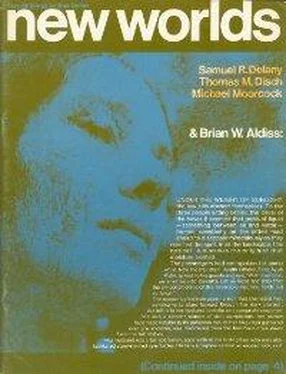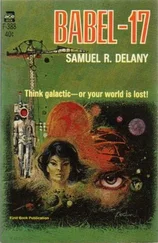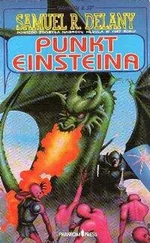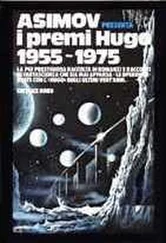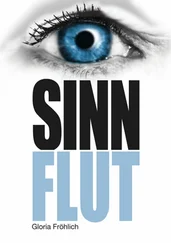Samuel Delany - Time Considered as a Helix of Semi-Precious Stones
Здесь есть возможность читать онлайн «Samuel Delany - Time Considered as a Helix of Semi-Precious Stones» весь текст электронной книги совершенно бесплатно (целиком полную версию без сокращений). В некоторых случаях можно слушать аудио, скачать через торрент в формате fb2 и присутствует краткое содержание. Год выпуска: 1968, Издательство: Stonehart Publications, Ltd., Жанр: Фантастика и фэнтези, на английском языке. Описание произведения, (предисловие) а так же отзывы посетителей доступны на портале библиотеки ЛибКат.
- Название:Time Considered as a Helix of Semi-Precious Stones
- Автор:
- Издательство:Stonehart Publications, Ltd.
- Жанр:
- Год:1968
- ISBN:нет данных
- Рейтинг книги:3 / 5. Голосов: 1
-
Избранное:Добавить в избранное
- Отзывы:
-
Ваша оценка:
- 60
- 1
- 2
- 3
- 4
- 5
Time Considered as a Helix of Semi-Precious Stones: краткое содержание, описание и аннотация
Предлагаем к чтению аннотацию, описание, краткое содержание или предисловие (зависит от того, что написал сам автор книги «Time Considered as a Helix of Semi-Precious Stones»). Если вы не нашли необходимую информацию о книге — напишите в комментариях, мы постараемся отыскать её.
Time Considered as a Helix of Semi-Precious Stones — читать онлайн бесплатно полную книгу (весь текст) целиком
Ниже представлен текст книги, разбитый по страницам. Система сохранения места последней прочитанной страницы, позволяет с удобством читать онлайн бесплатно книгу «Time Considered as a Helix of Semi-Precious Stones», без необходимости каждый раз заново искать на чём Вы остановились. Поставьте закладку, и сможете в любой момент перейти на страницу, на которой закончили чтение.
Интервал:
Закладка:
Time Considered as a Helix of Semi-Precious Stones
by Samuel R. Delany
Lay ordinate and abscissa on the century. Now cut me a quadrant. Third quadrant if you please. I was born in ’fifty. Here it’s ’seventy-five.
At sixteen they let me leave the orphanage. Dragging the name they’d hung me with (Harold Clancy Everet, and me a mere lad—how many monickers have I had since; but don’t worry, you’ll recognize my smoke) over the hills of East Vermont, I came to a decision:
Me and Pa Michaels, who had belligerently given me a job at the request of The Official looking Document with which the orphanage sends you packing, were running Pa Michaels’ dairy farm, i.e., thirteen thousand three hundred sixty-two piebald Guernseys all asleep in their stainless coffins, nourished and drugged by pink liquid flowing in clear plastic veins (stuff is sticky and messes up your hands), exercised with electric pulsers that make their muscles quiver, them not half awake, and the milk just a-pouring down into stainless cisterns. Anyway. The Decision (as I stood there in the fields one afternoon like the Man with the Hoe, exhausted with three hard hours of physical labor, contemplating the machinery of the universe through the fog of fatigue): With all of Earth, and Mars, and the Outer Satellites filled up with people and what-all, there had to be something more than this. I decided to get some.
So I stole a couple of Pa’s credit cards, one of his helicopters and a bottle of white lightning the geezer made himself, and took off. Ever try to land a stolen helicopter on the roof of the Pan Am building, drunk? Jail, schmail, and some hard knocks later I had attained to wisdom. But remember this oh best beloved: I have done three honest hours on a dairy farm less than ten years back. And nobody has ever called me Harold Clancy Everet again.
Hank Culafroy Eckles (red-headed, a bit vague, six foot two) strolled out of the baggage room at the spaceport carrying a lot of things that weren’t his in a small briefcase.
Beside him the Business Man was saying, “You young fellows today upset me. Go back to Bellona, I say. Just because you got into trouble with that little blonde you were telling me about is no reason to leap worlds, come on all glum. Even quit your job!”
Hank stops and grins weakly: “Well…”
“Now I admit, you have your real needs, which maybe we older folks don’t understand, but you have to show some responsibility towards…” He notices Hank has stopped in front of a door marked men. “Oh. Well. Eh.” He grins strongly. “I’ve enjoyed meeting you, Hank. It’s always nice when you meet somebody worth talking to on these damn crossings. So long.”
Out same door, ten minutes later, comes Harmony C. Eventide, six foot even (one of the false heels was cracked, so I stuck both of them under a lot of paper towels), brown hair (not even my hairdresser knows for sure), oh so dapper and of his time, attired in the bad taste that is oh so tasteful, a sort of man with whom no Business Men would start a conversation. Took the regulation ’copter from the port over to the Pan Am building (Yeah. Really. Drunk), came out of Grand Central Station, and strode along Forty-second towards Eighth Avenue, with a lot of things that weren’t mine in a small briefcase.
The evening is carved from light.
Crossed the plastiplex pavement of the Great White Way—I think it makes people look weird, all that white light under their chins—and skirted the crowds coming up in elevators from the sub-way, the sub-sub-way, and the sub-sub-sub (eighteen and first week out of jail I hung around here, snatching stuff from people—but daintily, daintily, so they never knew they’d been snatched), bulled my way through a crowd of giggling, goo-chewing school girls with flashing lights in their hair, all very embarrassed at wearing transparent plastic blouses which had just been made legal again (I hear the breast has been scene [as opposed to obscene] on and off since the seventeenth century) so I stared appreciatively; they giggled some more. I thought, Christ, when I was that age, I was on a God damn dairy farm, and took the thought no further.
The ribbon of news lights looping the triangular structure of Communication, Inc., explained in Basic English how Senator Regina Abolafia was preparing to begin her investigation of Organized Crime in the City. Days I’m so happy I’m disorganized I couldn’t begin to tell.
Near Ninth Avenue I took my briefcase into a long, crowded bar. I hadn’t been in New York for two years, but on my last trip through ofttimes a man used to hang out here who had real talent for getting rid of things that weren’t mine profitably, safely, fast. No idea what the chances were I’d find him. I pushed among a lot of guys drinking beer. Here and there were a number of well escorted old bags wearing last month’s latest. Scarfs of smoke gentled through the noise. I don’t like such places. Those there younger than me were all morphadine heads or feeble minded. Those older only wished more younger ones would come. I pried my way to the bar and tried to get the attention of one of the little men in white coats.
The lack of noise behind me made me glance back-She wore a sheath of veiling closed at the neck and wrists with huge brass pins (oh so tastefully on the border of taste); her left arm was bare, her right covered with chiffon like wine. She had it down a lot better than I did. But such an ostentatious demonstration of one’s understanding of the fine points was absolutely out of place in a place like this. People were making a great show of not noticing.
She pointed to her wrist, blood-colored nail indexing a yellow-orange fragment in the brass claw of her wristlet. “Do you know what this is, Mr. Eldrich?” she asked; at the same time the veil across her face cleared, and her eyes were ice; her brows, black.
Three thoughts: (One) She is a lady of fashion, because coming in from Bellona I’d read the Delta coverage of the “fading fabrics” whose hue and opacity were controlled by cunning jewels at the wrist. (Two) During my last trip through, when I was younger and Harry Calamine Eldrich, I didn’t do anything too illegal (though one loses track of these things); still I didn’t believe I could be dragged off to the calaboose for anything more than thirty days under that name. (Three) The stone she pointed to…
“… Jasper?” I asked.
She waited for me to say more; I waited for her to give me reason to let on I knew what she was waiting for (when I was in jail Henry James was my favorite author. He really was.)
“Jasper,” she confirmed.
“—Jasper…” I reopened the ambiguity she had tried so hard to dispel.
“… Jasper—” But she was already faltering, suspecting I suspected her certainty to be ill-founded.
“Okay. Jasper.” But from her face I knew she had seen in my face a look that had finally revealed I knew she knew I knew.
“Just whom have you got me confused with, Ma’am?”
Jasper, this month, is the Word.
Jasper is the pass/code/warning that the Singers of the Cities (who, last month, sang “Opal” from their divine injuries; and on Mars I’d heard the Word and used it thrice, along with devious imitations, to fix possession of what was not rightfully my own; and even there I pondered Singers and their wounds) relay by word of mouth for that loose and roguish fraternity with which I have been involved (in various guises) these nine years. It goes out new every thirty days; and within hours every brother knows it, throughout six worlds and worldlets. Usually it’s grunted at you by some blood-soaked bastard staggering into your arms from a dark doorway; hissed at you as you pass a shadowed alley; scrawled on a paper scrap pressed into your palm by some nasty-grimy moving too fast through the crowd. And this month, it was: Jasper.
Читать дальшеИнтервал:
Закладка:
Похожие книги на «Time Considered as a Helix of Semi-Precious Stones»
Представляем Вашему вниманию похожие книги на «Time Considered as a Helix of Semi-Precious Stones» списком для выбора. Мы отобрали схожую по названию и смыслу литературу в надежде предоставить читателям больше вариантов отыскать новые, интересные, ещё непрочитанные произведения.
Обсуждение, отзывы о книге «Time Considered as a Helix of Semi-Precious Stones» и просто собственные мнения читателей. Оставьте ваши комментарии, напишите, что Вы думаете о произведении, его смысле или главных героях. Укажите что конкретно понравилось, а что нет, и почему Вы так считаете.
